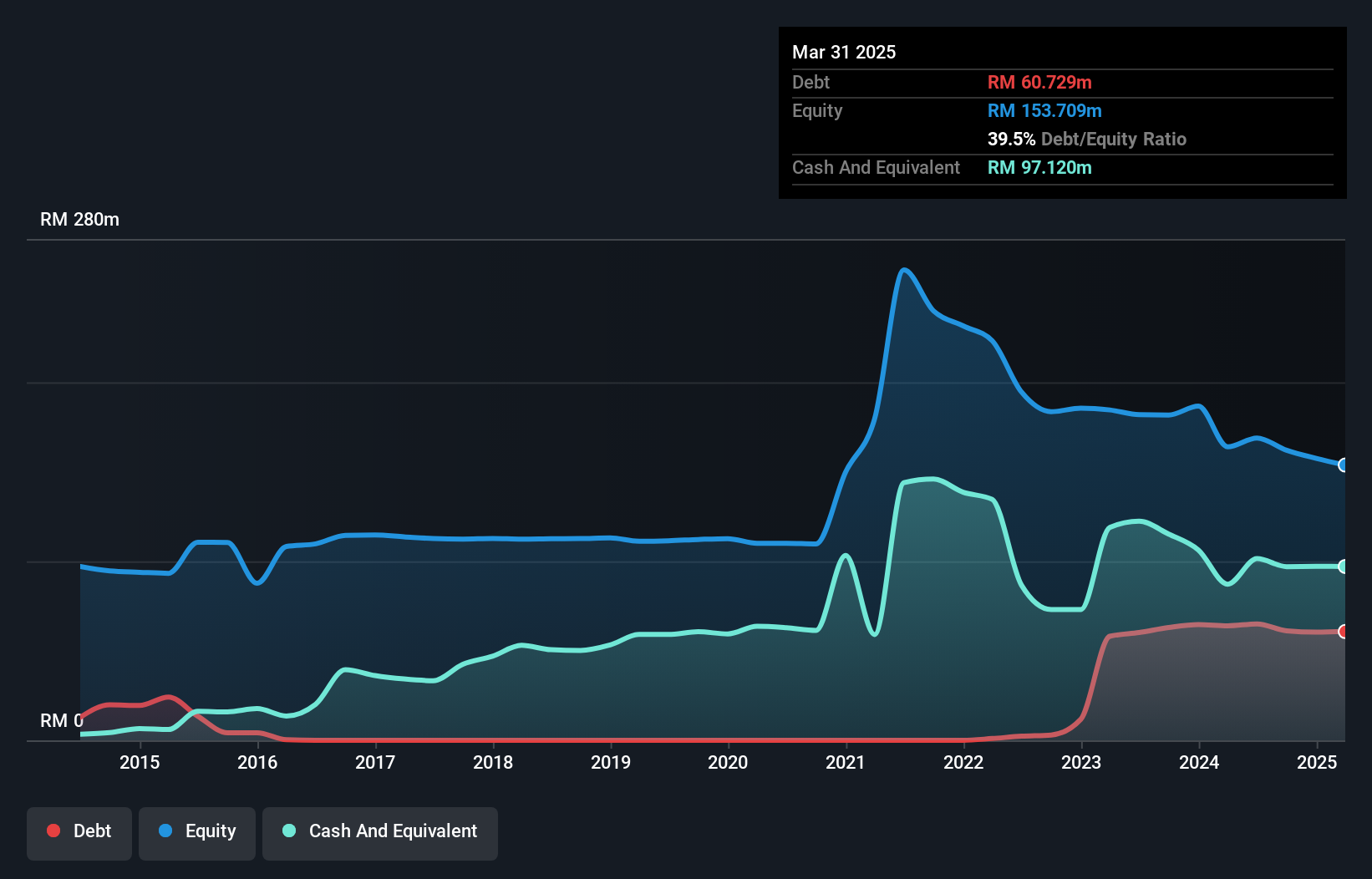Legendary fund manager Li Lu (who Charlie Munger backed) once said, 'The biggest investment risk is not the volatility of prices, but whether you will suffer a permanent loss of capital.' So it might be obvious that you need to consider debt, when you think about how risky any given stock is, because too much debt can sink a company. As with many other companies Joe Holding Berhad (KLSE:JOE) makes use of debt. But is this debt a concern to shareholders?
Why Does Debt Bring Risk?
Debt is a tool to help businesses grow, but if a business is incapable of paying off its lenders, then it exists at their mercy. If things get really bad, the lenders can take control of the business. However, a more usual (but still expensive) situation is where a company must dilute shareholders at a cheap share price simply to get debt under control. Of course, debt can be an important tool in businesses, particularly capital heavy businesses. The first thing to do when considering how much debt a business uses is to look at its cash and debt together.
What Is Joe Holding Berhad's Debt?
You can click the graphic below for the historical numbers, but it shows that Joe Holding Berhad had RM60.7m of debt in March 2025, down from RM64.0m, one year before. However, it does have RM97.1m in cash offsetting this, leading to net cash of RM36.4m.

A Look At Joe Holding Berhad's Liabilities
Zooming in on the latest balance sheet data, we can see that Joe Holding Berhad had liabilities of RM64.6m due within 12 months and liabilities of RM7.63m due beyond that. Offsetting this, it had RM97.1m in cash and RM8.45m in receivables that were due within 12 months. So it can boast RM33.3m more liquid assets than total liabilities.
This luscious liquidity implies that Joe Holding Berhad's balance sheet is sturdy like a giant sequoia tree. On this view, lenders should feel as safe as the beloved of a black-belt karate master. Succinctly put, Joe Holding Berhad boasts net cash, so it's fair to say it does not have a heavy debt load! The balance sheet is clearly the area to focus on when you are analysing debt. But it is Joe Holding Berhad's earnings that will influence how the balance sheet holds up in the future. So when considering debt, it's definitely worth looking at the earnings trend. Click here for an interactive snapshot.
View our latest analysis for Joe Holding Berhad
In the last year Joe Holding Berhad had a loss before interest and tax, and actually shrunk its revenue by 32%, to RM15m. That makes us nervous, to say the least.
So How Risky Is Joe Holding Berhad?
Although Joe Holding Berhad had an earnings before interest and tax (EBIT) loss over the last twelve months, it generated positive free cash flow of RM2.0m. So although it is loss-making, it doesn't seem to have too much near-term balance sheet risk, keeping in mind the net cash. The next few years will be important as the business matures. When analysing debt levels, the balance sheet is the obvious place to start. However, not all investment risk resides within the balance sheet - far from it. These risks can be hard to spot. Every company has them, and we've spotted 4 warning signs for Joe Holding Berhad (of which 3 are potentially serious!) you should know about.
If, after all that, you're more interested in a fast growing company with a rock-solid balance sheet, then check out our list of net cash growth stocks without delay.
New: Manage All Your Stock Portfolios in One Place
We've created the ultimate portfolio companion for stock investors, and it's free.
• Connect an unlimited number of Portfolios and see your total in one currency
• Be alerted to new Warning Signs or Risks via email or mobile
• Track the Fair Value of your stocks
Have feedback on this article? Concerned about the content? Get in touch with us directly. Alternatively, email editorial-team (at) simplywallst.com.
This article by Simply Wall St is general in nature. We provide commentary based on historical data and analyst forecasts only using an unbiased methodology and our articles are not intended to be financial advice. It does not constitute a recommendation to buy or sell any stock, and does not take account of your objectives, or your financial situation. We aim to bring you long-term focused analysis driven by fundamental data. Note that our analysis may not factor in the latest price-sensitive company announcements or qualitative material. Simply Wall St has no position in any stocks mentioned.
About KLSE:JOE
Joe Holding Berhad
Supplies automotive batteries in Malaysia and internationally.
Excellent balance sheet with slight risk.
Market Insights
Community Narratives




